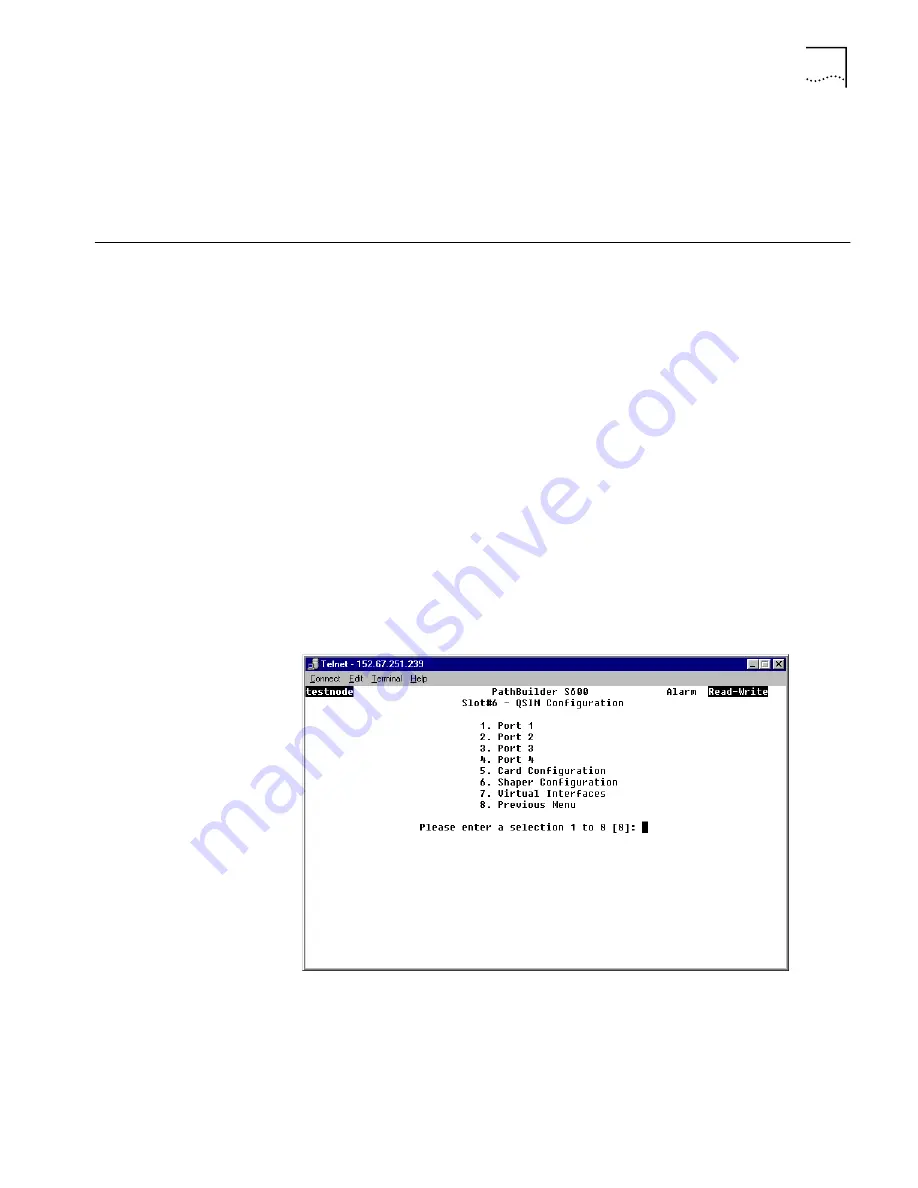
Configuring the QSIM/HSIM/FAM Modules
163
b
Configure virtual interfaces as described under “Configuring Virtual Interfaces”
earlier in this chapter. You configure virtual interfaces for the CBR card in the
same way that you configure virtual interfaces for the MCPU card, except that
you can configure 24 VIs total for the CBR card, as opposed to 2 for the MCPU
card.
Configuring the
QSIM/HSIM/FAM
Modules
The PathBuilder S600 supports three frame relay modules: QSIM, HSIM, and FAM.
The configuration procedure is the same for all three modules, but different
parameters are available on the port configuration menu.
Configuring the QSIM, HSIM, or FAM involves the following tasks:
n
Configuring the individual QSIM/HSIM/FAM ports
n
(For Frame Relay ports only) Configuring the QSIM/HSIM/FAM LMI (Local
Management Interface)
n
Configuring the QSIM/HSIM/FAM card and its input shapers and virtual
interfaces
Configuring the
QSIM/HSIM/FAM Ports
To configure the QSIM/HSIM/FAM ports, follow these steps:
1
From the List Card menu, select the number corresponding to the slot in which the
QSIM, HSIM, or FAM is installed: [4], [5], or [6]. The QSIM, HSIM, or FAM
Configuration menu appears. Figure 126 shows the QSIM Configuration menu.
The HSIM and FAM menus are similar, except that the HSIM Configuration menu
lists one port and the FAM Configuration menu lists eight ports.
Figure 126
QSIM Configuration Menu
2
Select the number corresponding to the port you want to configure: between 1
and 4 for the QSIM; 1 for the HSIM; and 1-8 for the FAM. The QSIM, HSIM, or
FAM Port Configuration Selection menu appears. This menu provides options that
allow you to access menus for configuring port and (for Frame Relay ports) LMI
(Local Management Interface) parameters.
Figure 127 shows the QSIM Port Configuration Selection menu. The HSIM and
FAM menus are the same.
Summary of Contents for 3C63100-AC-C - PathBuilder S600...
Page 8: ...INDEX 3COM CORPORATION LIMITED WARRANTY ...
Page 14: ...xiv CHAPTER SUPPLEMENTARY REGULATORY INFORMATION ...
Page 18: ...18 ABOUT THIS GUIDE ...
Page 28: ...28 CHAPTER 1 SYSTEM DESCRIPTION ...
Page 74: ...74 CHAPTER 3 GETTING STARTED ...
Page 230: ...230 INDEX ...
















































